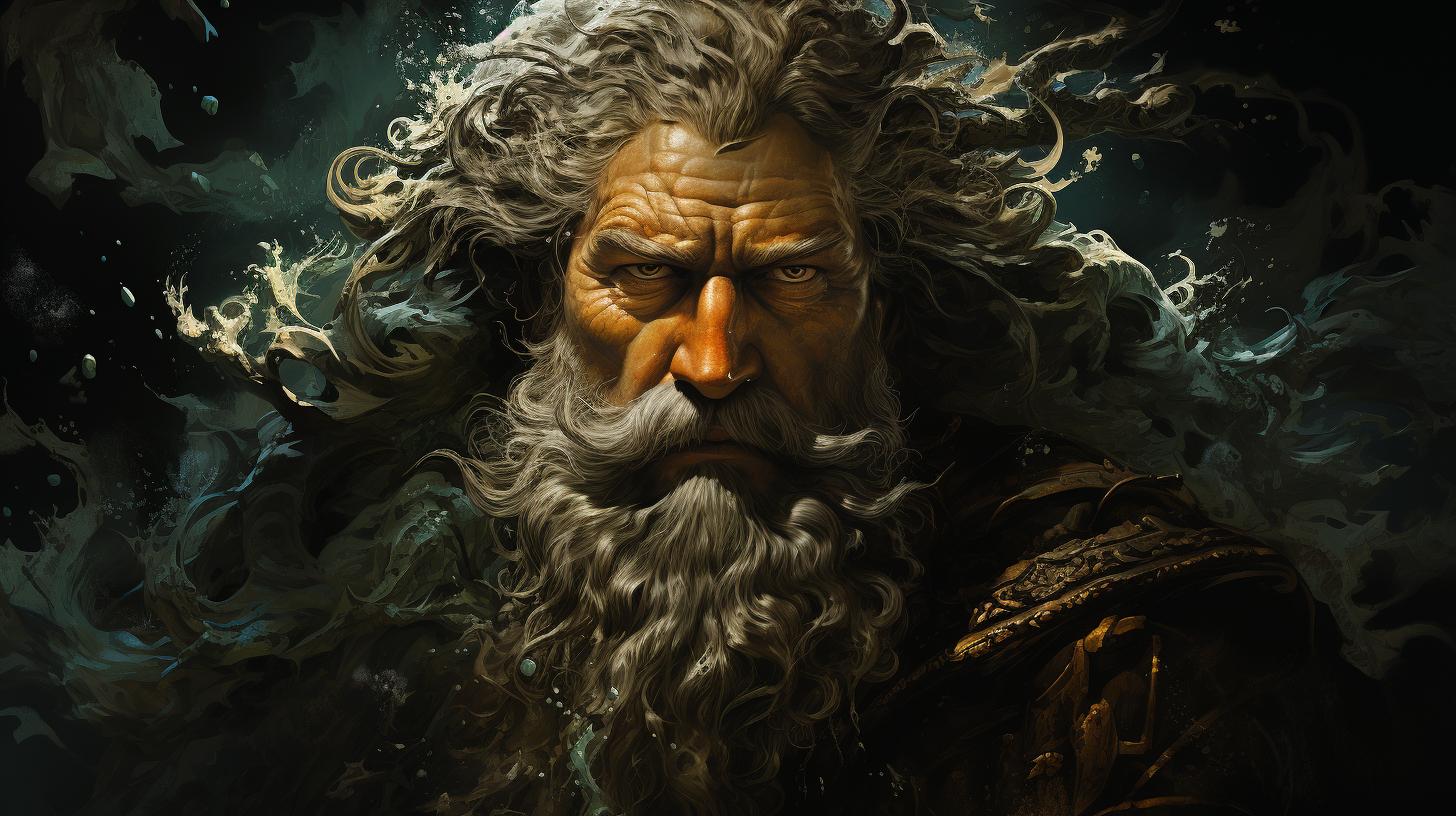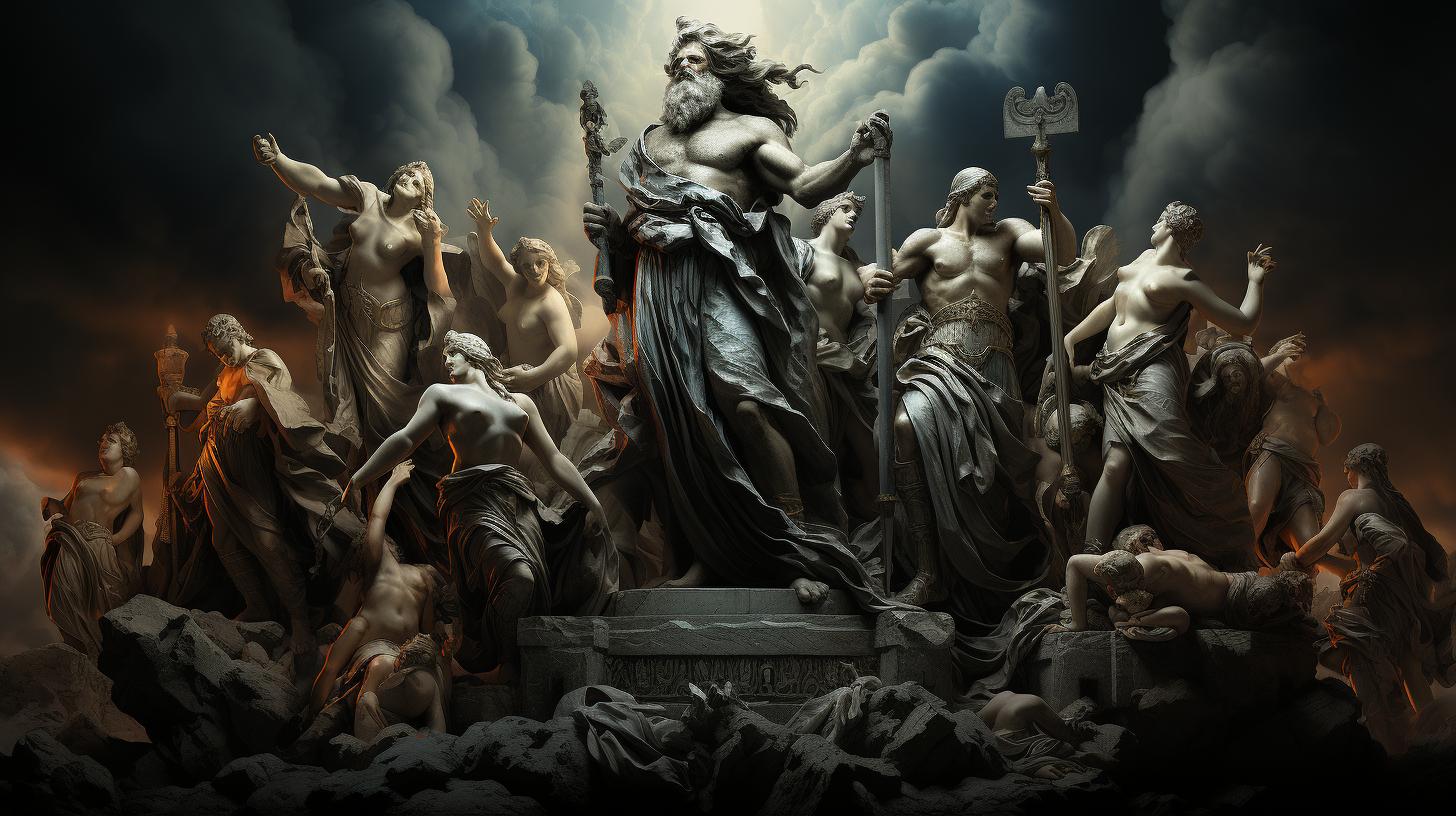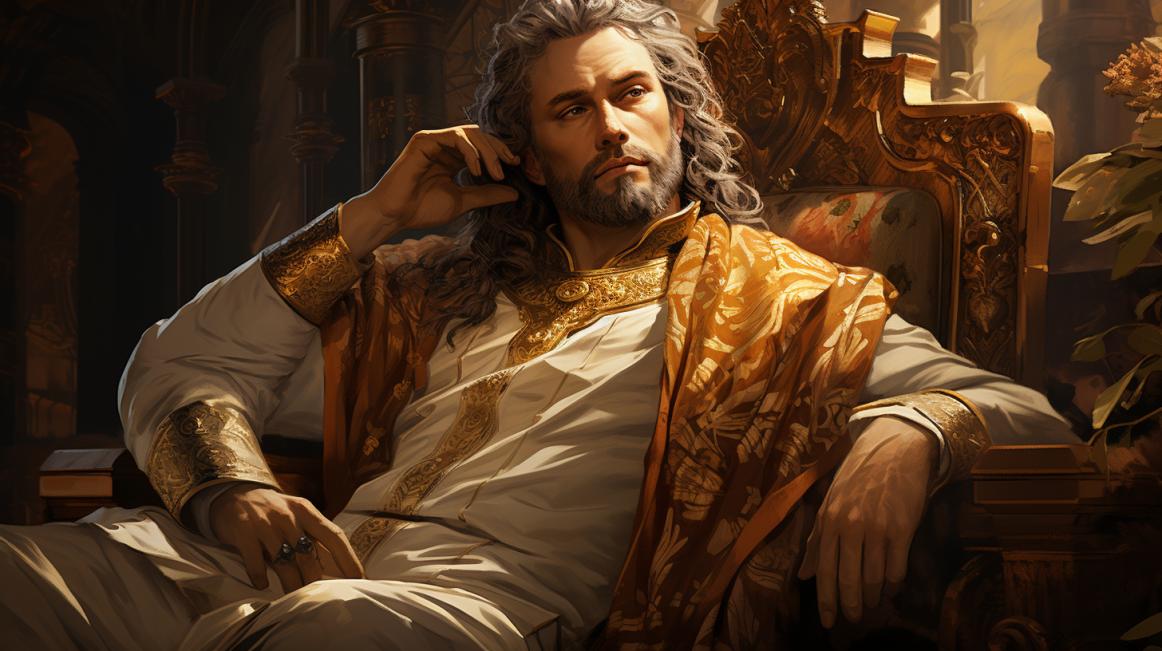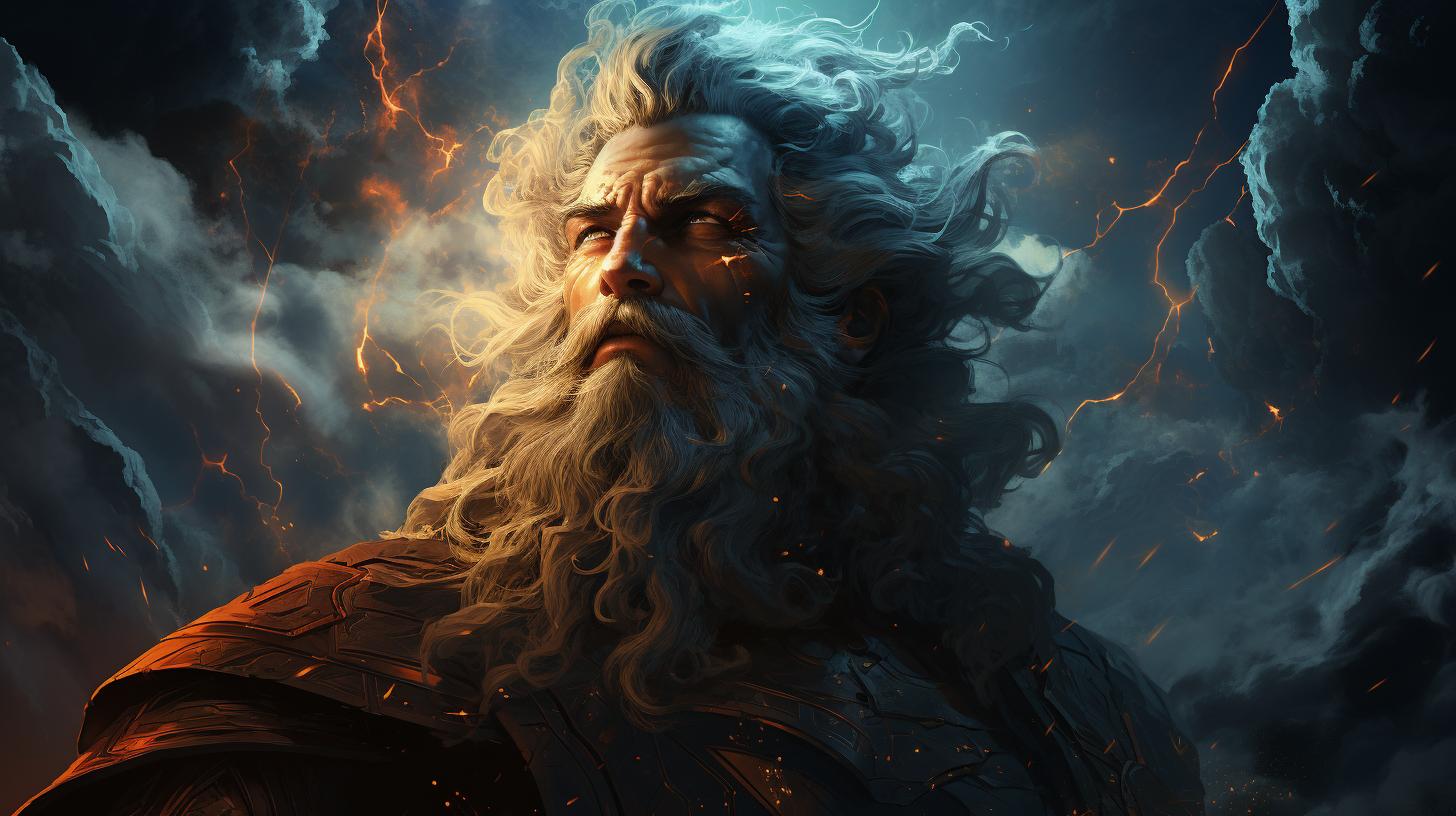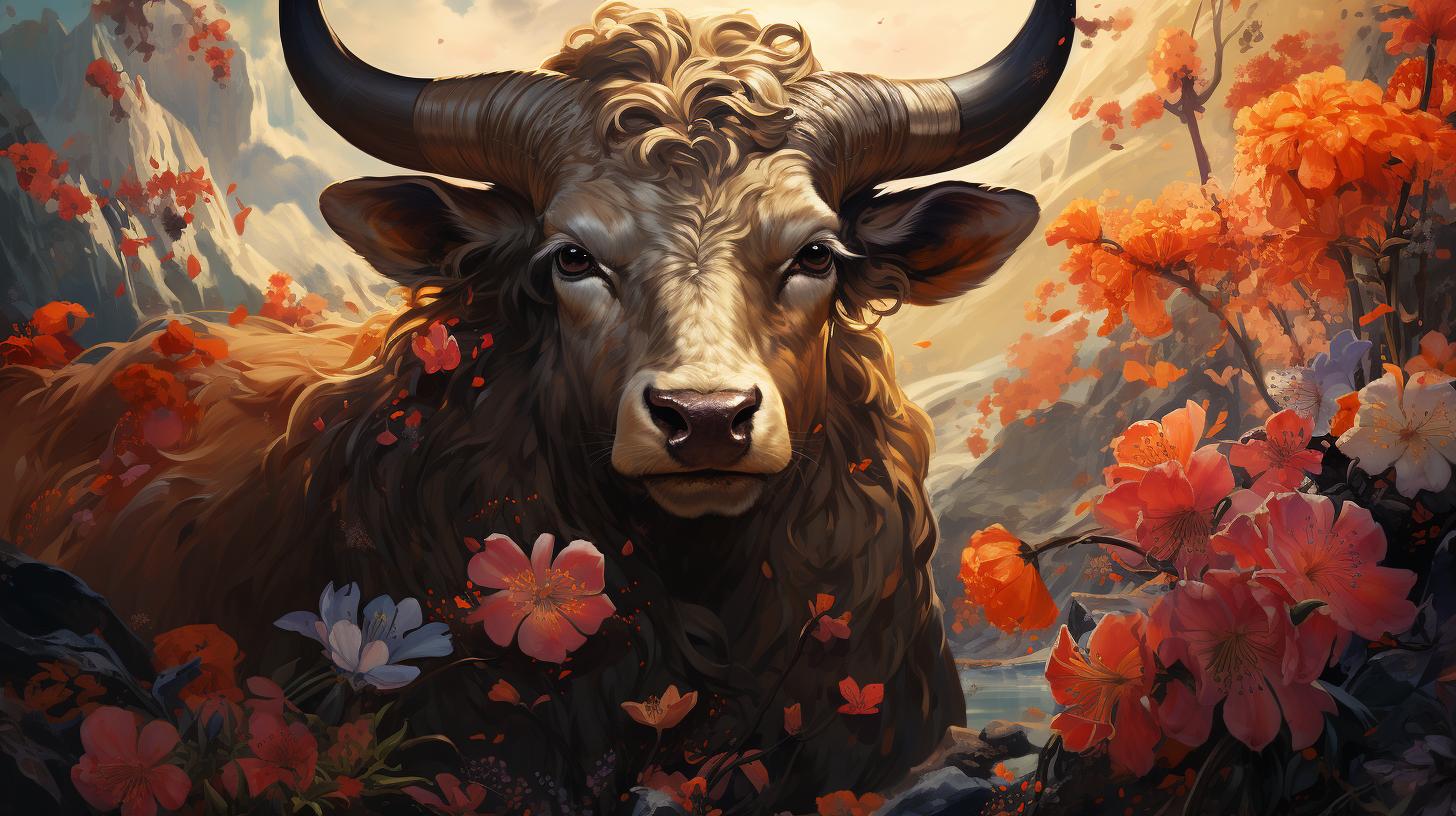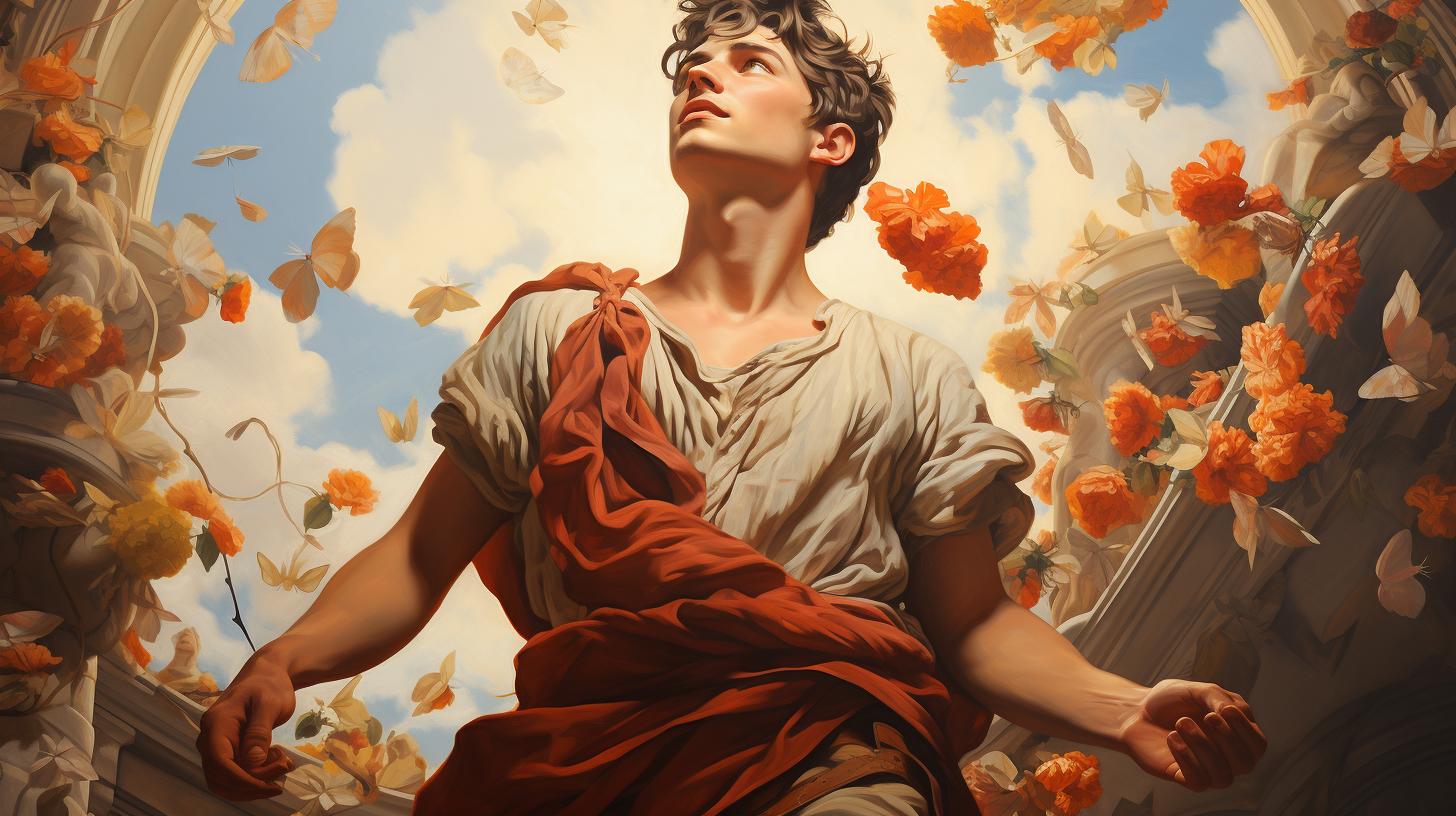Greek Mythology Glaucus: Unraveling the Intriguing Tales of a Legendary Sea God from Ancient Greece

Greek mythology Glaucus is a fascinating figure with various tales and associations. From Glaucus Pontius, the humble fisherman who gained immortality and became a sea god, to Glaucus, the son of Sisyphus and Minos, with their dark and tragic stories, Glaucus captivates in Greek mythology.
Additionally, Glaucus played a significant role in the Trojan War and had intriguing love affairs. This article explores the origins, role, and symbolism of Glaucus, as well as his portrayal in art, literature, and culture.
Discover the enduring legacy and influence of this enigmatic character in Greek mythology.
The Origins of Glaucus in Greek Mythology
In Greek mythology, the enigmatic figure of Glaucus has various origin stories and associations. Let’s explore the intriguing tales surrounding his existence and how he became intertwined with Greek mythical lore.
Glaucus Pontius: The Fisherman who Became a Sea God
One prominent version of Glaucus’s origin involves his humble beginnings as a simple fisherman and diver from Boeotia. His life took a dramatic turn when he discovered a magical herb that granted him immortality and the gift of prophecy.
As a result, he ascended to become a sea god, taking on the appearance of a triton adorned with seashells and seaweed. Furthermore, Glaucus is associated with Melicertes, another sea deity.
Notably, Glaucus is recognized as the father of the hero Bellerophon, who himself possesses tales and legends.
Glaucus, Son of Sisyphus: A Dark and Twisted Tale
Another iteration of Glaucus’s origin stems from his lineage as the son of Sisyphus, the king of Corinth, and husband to Merope. Glaucus fed his horses with human flesh, but tragically met his demise when torn apart by the very steeds he nourished.
This gruesome story adds a dark twist to the mythological narrative surrounding Glaucus.
Glaucus, Son of Minos: A Tragic Childhood and Transformation
Yet another version of Glaucus’s origin traces his lineage to Minos, the king of Crete, and Pasiphae. As a child, Glaucus accidentally fell into a jar of honey and suffocated.
However, the seer Polyeidus discovered the lifeless child and, witnessing a companion revive a snake with an herb, used the same herb to bring Glaucus back to life. This tragic childhood and subsequent resurrection highlight the complexities of Glaucus’s mythological existence.
Glaucus in the Trojan War
Glaucus, a prominent figure in Greek mythology, played a significant role in the infamous Trojan War. This section explores his involvement in the war, highlighting his heroic partnership with Bellerophon and examining his overall role and significance.
Glaucus and Bellerophon: Heroes in the War
Glaucus teamed up with Bellerophon, a renowned hero, to fight against the Trojans. Together, they showcased their bravery and battled valiantly against the enemy forces. Their partnership exemplified the strength and determination of Greek warriors in the face of adversity.
Glaucus’ Role and Significance in the Trojan War
Beyond his alliance with Bellerophon, Glaucus played a crucial role in the Trojan War. As a skilled warrior, he fought alongside other Greek heroes, contributing to their military strategies and victories.
Glaucus’ presence on the battlefield brought inspiration and courage to his comrades, earning him a respected position among the Greek forces.
Implications and Consequences
Glaucus’ actions and contributions during the Trojan War had far-reaching implications. His heroism and leadership qualities left a lasting impact on future generations of Greek warriors, serving as a model for bravery and dedication in the face of war.
Glaucus’ involvement ultimately shaped the outcome of the conflict and solidified his place in the annals of Greek mythology.
- Glaucus and Bellerophon fought together as feared warriors against the Trojans.
- Glaucus’ role extended beyond his partnership with Bellerophon, as he fought alongside other Greek heroes.
- His valor and leadership inspired future generations of warriors.
- Glaucus’ contributions had a significant impact on the overall outcome of the Trojan War.
By exploring Glaucus’ endeavors in the Trojan War, we gain a deeper understanding of his bravery, strategic acumen, and lasting influence in the realm of Greek mythology.
His heroic feats and unwavering commitment stand as a testament to the enduring spirit and valor of the ancient Greek warriors.
Please note that the content provided here is part of a larger article focusing on ‘Greek Mythology Glaucus’, specifically delving into the section ‘2.
Glaucus in the Trojan War’. For a comprehensive understanding, it is recommended to refer to the complete article.
Glaucus and His Love Affairs
In the realm of love and romance, Glaucus’s life is filled with both unrequited love and tumultuous relationships. His story intertwines with several intriguing characters and fateful encounters.
Glaucus’ Unrequited Love for Scylla
One of the most well-known episodes in Glaucus’s love life is his ill-fated affection for the beautiful nymph Scylla. Despite his attempts to win her over, Scylla was repulsed by Glaucus’s fish-like appearance and fled from him.
The rejection fueled Glaucus’s desperation, leading him to seek the help of the enchantress Circe in the hopes of winning Scylla’s heart.
However, Circe, captivated by Glaucus’s charm, fell deeply in love with him herself.
Out of jealousy, she transformed Scylla into a monstrous creature with twelve feet and six heads, ensuring that Glaucus could never be with her.
Glaucus’ Love Interests and Relationships
Aside from his tragic love affair with Scylla, Glaucus had other romantic entanglements. He was involved with nymphs and goddesses, including Ariadne, Syme, and Hydne, each relationship filled with its own unique passion and turmoil.
Interestingly, some sources even suggest that Glaucus had intimate relationships with male figures, such as Nereus and Melicertes, showcasing his fluidity in matters of the heart.
- Relationship with Ariadne: Glaucus shared a passionate connection with Ariadne, the princess of Crete, whose own story entwined with the hero Theseus and the Labyrinth.
- Involvement with Syme: Glaucus’s affair with Syme, a Naiad of a sacred spring, was marked by intense desire and secrecy.
- Love and Tragedy with Hydne: Glaucus’s relationship with Hydne, the daughter of the river god Meander, was rife with both ecstasy and sorrow, ultimately leading to heartbreaking consequences.
Glaucus’s love affairs showcase the complexities and unpredictable nature of his romantic encounters, further deepening his characterization within Greek mythology.
Glaucus in Art, Literature, and Culture
Glaucus, the intriguing figure from Greek mythology, has left a lasting impression on various forms of artistic expression throughout history. His captivating stories have been depicted in ancient Greek art and sculpture, immortalizing his transformation and divine nature.
Glaucus in Ancient Greek Art and Sculpture
In ancient Greek art and sculpture, Glaucus is often portrayed as a magnificent sea god, with elements representing his association with the ocean. Artists depicted him with a hybrid form, his lower body ending in a fish tail and his upper body covered in intricate details of seaweed and seashells.
These artistic representations aimed to convey his divine power and connection to the sea.
Glaucus in Greek Mythological Literature and Poetry
Glaucus’ tales have also inspired numerous works in Greek mythological literature and poetry. Poets and authors have explored the themes of transformation, love, and tragedy that surround Glaucus’ story. His encounters with mythical creatures, such as the monstrous Scylla, have been vividly described, captivating readers with their dramatic and captivating narrative.
Greek poets like Callimachus have dedicated poems solely to Glaucus, delving into his character and the profound impact he had on his surroundings. These literary works have further enriched the mythological tapestry surrounding Glaucus, making him a central figure in Greek literature.
Modern Interpretations and Depictions of Glaucus
The fascination with Glaucus continues even today, with modern interpretations and depictions of this legendary figure. Artists, writers, and filmmakers have found inspiration in his compelling myth and have reimagined him through their creative lenses.
From paintings to novels and even operas, Glaucus’ enigmatic persona has found a place in contemporary culture, showcasing the enduring appeal of Greek mythology.
These modern interpretations explore new dimensions of Glaucus’ character, often focusing on his romantic entanglements and complex relationships. They provide fresh perspectives on his role as a symbol of transformation, love, and the power of the sea.
Through these artistic endeavors, Glaucus continues to captivate and inspire audiences, ensuring his place as a significant figure in art, literature, and culture.
- Glaucus’ portrayal in ancient Greek art and sculpture represents his divine nature and connection to the sea.
- Greek mythological literature and poetry have delved into Glaucus’ captivating tales, exploring themes of love, transformation, and tragedy.
- Modern interpretations of Glaucus in various forms of art, literature, and culture continue to captivate audiences, offering fresh perspectives and new dimensions to his character.
The Symbolism and Themes of Glaucus in Greek Mythology
In Greek mythology, Glaucus represents powerful symbolism and explores various themes that resonate with the human experience.
His stories reveal profound insights into transformation, rebirth, love, tragedy, and fate.
Glaucus as a Symbol of Transformation and Rebirth
Glaucus is often portrayed as a symbol of transformation and rebirth in Greek mythology. His journey from a mortal fisherman to a divine sea god signifies the limitless potential for personal growth and metamorphosis.
Glaucus’ encounter with the magical herb gifted him immortality and the ability to prophesy, marking a profound transformation in his existence. This symbolism of transformation and rebirth serves as a reminder of the ever-evolving nature of human life and the possibilities that arise from embracing change.
The Themes of Love, Tragedy, and Fate in Glaucus’ Stories
Glaucus’ tales are intertwined with themes of love, tragedy, and fate. His unrequited love for Scylla, a beautiful nymph, showcases the complexities of desire and the consequences that can come from pursuing it.
Their ill-fated romance, haunted by Glaucus’ fish-like appearance and Scylla’s monstrous transformation, highlights the tragic nature of love and the unforeseen consequences of one’s choices.
Furthermore, Glaucus’ involvement in the Trojan War reveals the role of fate and destiny in shaping human lives.
As a key figure in the war, Glaucus’ encounters with other heroes, such as Bellerophon, demonstrate the intricate web of fate and the unpredictable nature of human existence. These stories emphasize the interplay between mortal actions and the predetermined outcomes delineated by the gods.
Through these themes, the stories of Glaucus provide profound insights into the human condition, exploring the complexities of transformation, love, tragedy, and the inexorable grip of fate.
The Legacy and Influence of Glaucus in Greek Mythology
Throughout Greek mythology, Glaucus’s stories have left a lasting impact on our understanding of sea gods and mythological figures.
His intriguing tales and symbolic representation continue to resonate in various aspects of Greek culture.
Glaucus’ Impact on the Understanding of Sea Gods and Mythological Figures
Glaucus, as a mortal who transformed into a sea god, offers unique insights into the complexities of divine beings. His journey from a simple fisherman to an immortal deity provides a glimpse into the role and significance of sea gods in Greek mythology.
Glaucus invites exploration into the divine-human connection and the transformative power of the sea.
Furthermore, Glaucus’s ability to gain the gift of prophecy through a magical herb adds to the mystical layers of his character.
This aspect of his story sheds light on the prophetic abilities bestowed upon certain mythological figures and their influence on the mortal realm.
Glaucus as a Representation of the Power of the Sea in Greek Culture
The sea holds immense power and importance in Greek culture, and Glaucus embodies this significance.
His transformation into a sea creature, with his lower body resembling that of a fish, symbolizes the interplay between land and sea. Glaucus serves as a personification of the sea’s untamed nature, its mystery, and its awe-inspiring force.
Moreover, Glaucus’s role as a god of the sea and his interactions with other sea creatures, such as his involvement with Scylla, highlight the interconnectedness of various elements within the natural world.
These interactions depict the sea not only as a physical entity but also as a realm of mythical creatures and divine beings.
Overall, Glaucus’s legacy in Greek mythology extends beyond his individual tales.
His impact on the understanding of sea gods and mythological figures, as well as his representation of the power and significance of the sea in Greek culture, solidifies his enduring influence and relevance in the realm of ancient mythology.
.











